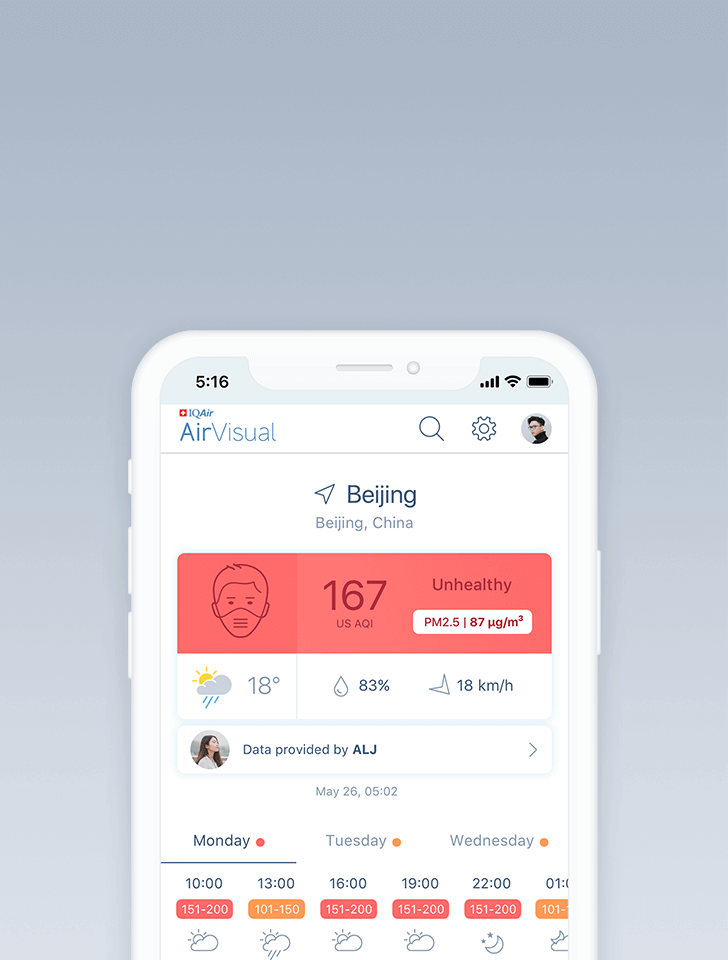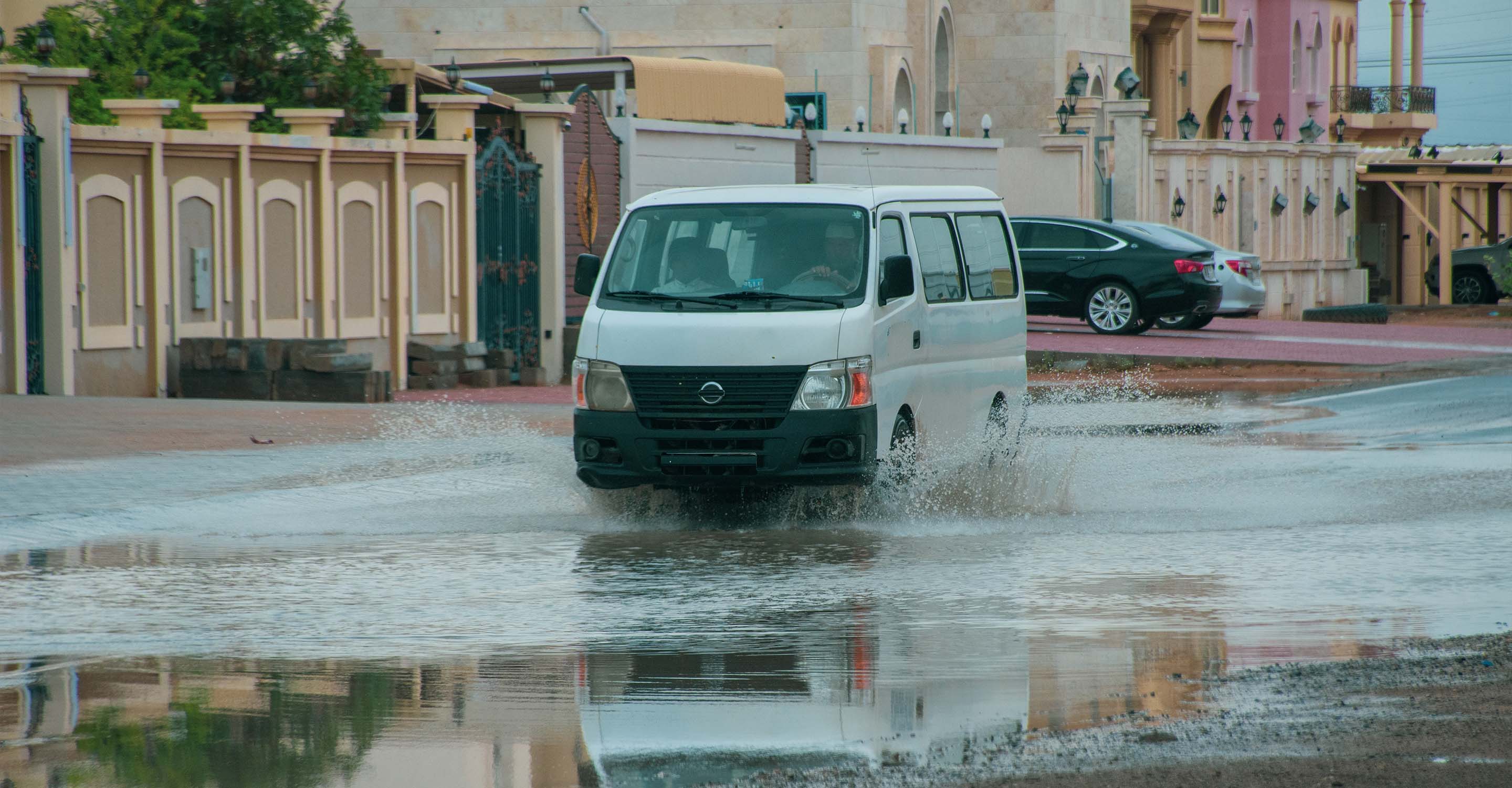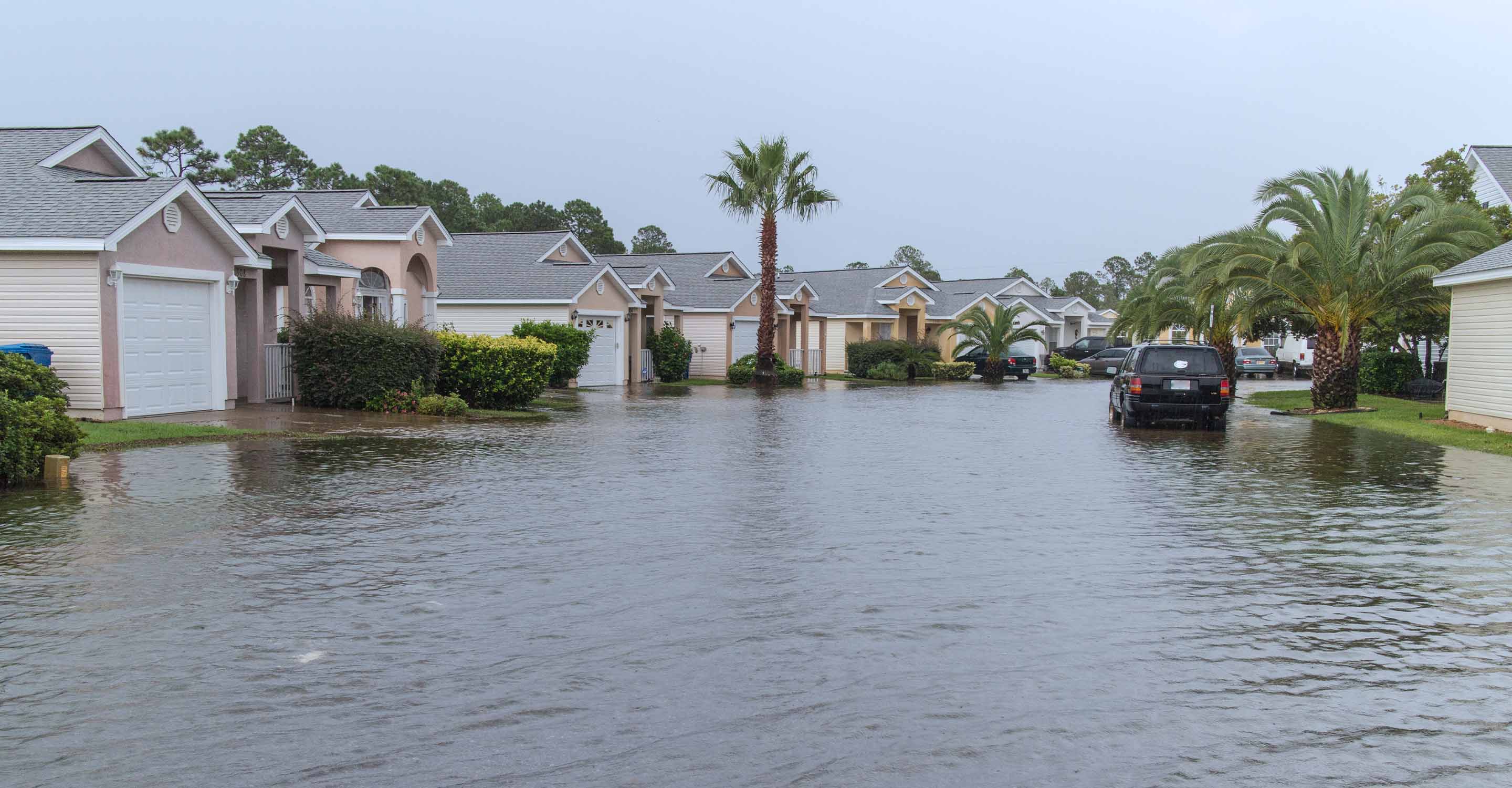Air quality in Luohe
Air quality index (AQI) and PM2.5 air pollution in Luohe
7.7K people follow this city
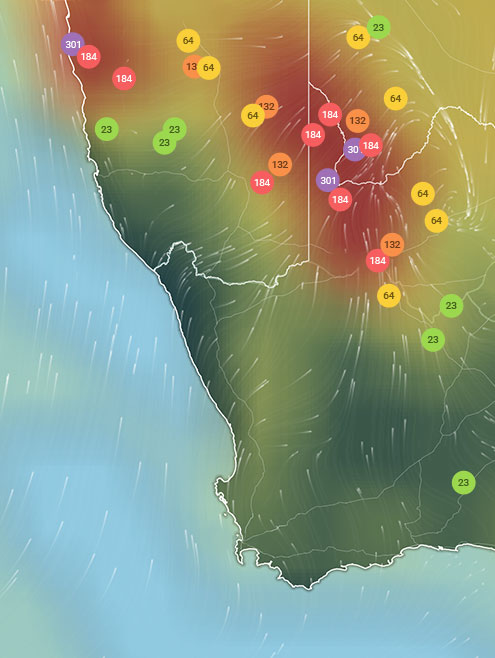
Luohe Air Quality Map
Real-time Luohe air pollution map
Weather
What is the current weather in Luohe?
| Weather | Broken clouds |
| Temperature | 55.4°F |
| Humidity | 40% |
| Wind | 5.7 mp/h |
| Pressure | 29.9 Hg |
live aqi city ranking
Real-time China city ranking
| # | city | US AQI |
|---|---|---|
| 1 | Lucheng, Anhui | 253 |
| 2 | Xianyang, Shaanxi | 193 |
| 3 | Jiamusi, Heilongjiang | 182 |
| 4 | Baoji, Shaanxi | 179 |
| 5 | Xian, Shaanxi | 176 |
| 6 | Xiangyang, Hubei | 176 |
| 7 | Jilin, Jilin | 170 |
| 8 | Wuzhong, Ningxia | 165 |
| 9 | Tongchuan, Shaanxi | 164 |
| 10 | Songjiang, Shanghai | 159 |
(local time)
SEE WORLD AQI RANKING3D animated air pollution map
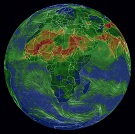
live Luohe aqi ranking
Real-time Luohe air quality ranking
| # | station | US AQI |
|---|---|---|
| 1 | Water resources bureau | 97 |
| 2 | Luohe University | 91 |
| 3 | Radio and television bureau | 91 |
| 4 | Sanwuyiwu gongchang | 88 |
| 5 | Health Commission | 86 |
(local time)
SEE WORLD AQI RANKINGUS AQI
91
live AQI index
Moderate
Overview
What is the current air quality in Luohe?
| Air pollution level | Air quality index | Main pollutant |
|---|---|---|
| Moderate | 91 US AQI | PM2.5 |
| Pollutants | Concentration | |
|---|---|---|
| PM2.5 | 31µg/m³ | |
| PM10 | 105µg/m³ | |
| O3 | 58µg/m³ | |
| NO2 | 29µg/m³ | |
| SO2 | 9µg/m³ | |
| CO | 400µg/m³ | |
PM2.5
x6.2
PM2.5 concentration in Luohe is currently 6.2 times the WHO annual air quality guideline value
Health Recommendations
What is the current air quality in Luohe?
| Sensitive groups should reduce outdoor exercise | |
| Close your windows to avoid dirty outdoor air GET A MONITOR | |
| Sensitive groups should wear a mask outdoors GET A MASK | |
| Sensitive groups should run an air purifier GET AN AIR PURIFIER |
Forecast
Luohe air quality index (AQI) forecast
| Day | Pollution level | Weather | Temperature | Wind |
|---|---|---|---|---|
| Sunday, Apr 21 | Unhealthy for sensitive groups 145 AQI US | 78.8° 59° | ||
| Monday, Apr 22 | Unhealthy for sensitive groups 104 AQI US | 80.6° 57.2° | ||
| Tuesday, Apr 23 | Moderate 98 AQI US | 77° 59° | ||
| Today | Moderate 91 AQI US | 77° 59° | ||
| Thursday, Apr 25 | Moderate 67 AQI US | 82.4° 53.6° | ||
| Friday, Apr 26 | Unhealthy for sensitive groups 105 AQI US | 84.2° 57.2° | ||
| Saturday, Apr 27 | Unhealthy for sensitive groups 113 AQI US | 84.2° 59° | ||
| Sunday, Apr 28 | Unhealthy for sensitive groups 110 AQI US | 84.2° 60.8° | ||
| Monday, Apr 29 | Unhealthy for sensitive groups 126 AQI US | 84.2° 62.6° | ||
| Tuesday, Apr 30 | Moderate 78 AQI US | 78.8° 59° |
Interested in hourly forecast? Get the app
AIR QUALITY ANALYSIS AND STATISTICS FOR Luohe
What is the level of air pollution in Luohe?
Luohe is a prefecture-level city in central Henan province, China. As such, it administers 3 districts and 2 counties. In 2010, a census was undertaken which estimated the population to be approximately 2.5 million inhabitants though this will be substantially more now.
In the early months of 2021, Luohe was experiencing a period of air quality that was classed as being “Unhealthy for sensitive groups” according to the World Health Organisation’s (WHO) recommendations. The registered US AQI reading was 122. This is the standard United States Air Quality Index which is an internationally renowned system of measurement.
The six main measured pollutants which are used as a standard were as follows: PM2.5 - 44 µg/m³, PM10 - 74 µg/m³, ozone (O3) - 130 µg/m³, nitrogen dioxide (NO2) - 1 µg/m³, sulphur dioxide (SO2) - 6 µg/m³ and carbon monoxide (CO) - 500 µg/m³. With levels such as these, the advice would be to close doors and windows so as not to let in any more dirty air. Those people who are sensitive to polluted air should avoid exposure outside if possible until the quality improves. As dirty air is detrimental to healthy people too, all forms of outdoor activity should be postponed until an improvement can be seen. It would be advantageous to run an air purifier if one is available.
Does the level of air pollution vary throughout the year in Luohe?
The quality of air can differ throughout the day because it is affected by so many variables. Looking at the recently released figures from IQAir.com it can quickly be seen that the air quality is very dependent on the seasons of the year. The best quality air can be experienced during the summer months from the beginning of May until the end of September when the air is classified as being “Moderate” quality with recordings between 12.1 and 35.4 µg/m³. During spring, March and April, the air quality was not so good when it was classified as being “Unhealthy for sensitive groups” with figures between 35.5 and 55.4 µg/m³. This was the same classification later on in the year during October. For the remaining four months which fall over the winter period, the quality again worsened to the “Unhealthy” level when figures were recorded between 55.5 and 150.4 µg/m³.
Looking back to 2017 when records were first kept about Luohe, it can be seen that the overall air quality is improving. In 2017 the figure was 63.7µg/m³ with a slight improvement the following year of 62.6 µg/m³. Another reduction was noted in 2019 with a figure of 60 µg/m³, before the latest figure in 2020 of 55.4 µg/m³. This larger reduction could be a result of the lockdown imposed because of the COVID-19 pandemic.
What are the sources of the polluted air in Luohe?
Air pollution is the pollution of the indoor or outdoor environment caused by any chemical, physical or biological substance that can change the natural characteristics of the air that we breathe. Domestic combustion devices, motor vehicles, industrial facilities, and forest fires are common sources of air pollution. Pollutants that have caused major concern in the field of public health include particulate matter, carbon monoxide, ozone, nitrogen dioxide, and sulphur dioxide. Outdoor and indoor air pollution causes potentially fatal respiratory diseases and other diseases.
Open fires (including wildfires, burning forests, burning urban waste and crop waste, etc.) are the largest single source of black carbon (BC or commonly known as soot) emissions. The heating of residential and commercial buildings and transportation of fuels accounts for about 80 per cent of black carbon emissions in human activities related to energy production and use. Emissions from burning diesel, biofuels and kerosene are the emission sources with the highest concentration of black carbon amongst all emission sources, and therefore have been identified as key emission reduction targets to prevent further climate change.
Ozone is not emitted directly but is formed by the interaction of other emissions with sunlight. These early emissions generally include methane, nitrogen oxides, volatile organic compounds, carbon monoxide, etc. Ozone is the second-ranked short-term climate pollutant, which can adversely affect the respiratory tract, be responsible for changes in lung function, increase the incidence of asthma and may cause premature death.
Can anything be done to lessen the air pollution in Luohe?
The implementation of more stringent transportation and fuel emissions and performance standards to reduce the emissions of vehicle particulate matter and ozone pre-emissions (such as nitrogen dioxide) are being introduced wherever feasible to do so.
The best way to improve air quality would be to move away from the reliance on fossil fuels to generate our power. Alternate energy sources such as solar, wind and hydro are becoming more commonplace with every year that passes. Producing clean energy is vital but equally important is to reduce the overall consumption of energy by adopting responsible habits and using more efficient devices. Modern technology is making deep inroads into fuel-saving devices.
Changing to electric vehicles and hydrogen vehicles, and promoting shared mobility (i.e. carpooling and public transport) reduces air pollution. Cycling is openly encouraged in many large cities now as they try to persuade their inhabitants to be more environmentally aware.
What effects does polluted air have on human health?
Polluted air affects everybody whether they are healthy or not. Health impacts from polluted air include respiratory irritation or breathing difficulties during exercise or outdoor activities. The risk of consequences depends on several factors such as your current health status, the type of pollutant and its concentration level in the atmosphere, and the length of exposure to the polluted air.
High levels of air pollution can have immediate and severe effects. After exposure to polluted air, a body is more prone to aggravated cardiovascular and respiratory illnesses. The heart and lungs become stressed as they have to work harder in order to keep a constant supply of the correct amount of oxygen to the body. Cells can soon become damaged and they do not always repair themselves quickly. Breathing in high levels of ozone can burn the lining of the respiratory system, a little like sunburn. Most bodies can self-repair, but those with pre-existing problems will feel incapacitated for longer.
Certain groups of people are more prone to the effects than others. Pregnant women, children under the age of 14, senior citizens and those who spend extended amounts of time outdoors because of their work. These people must take extra care when subject to polluted air.

